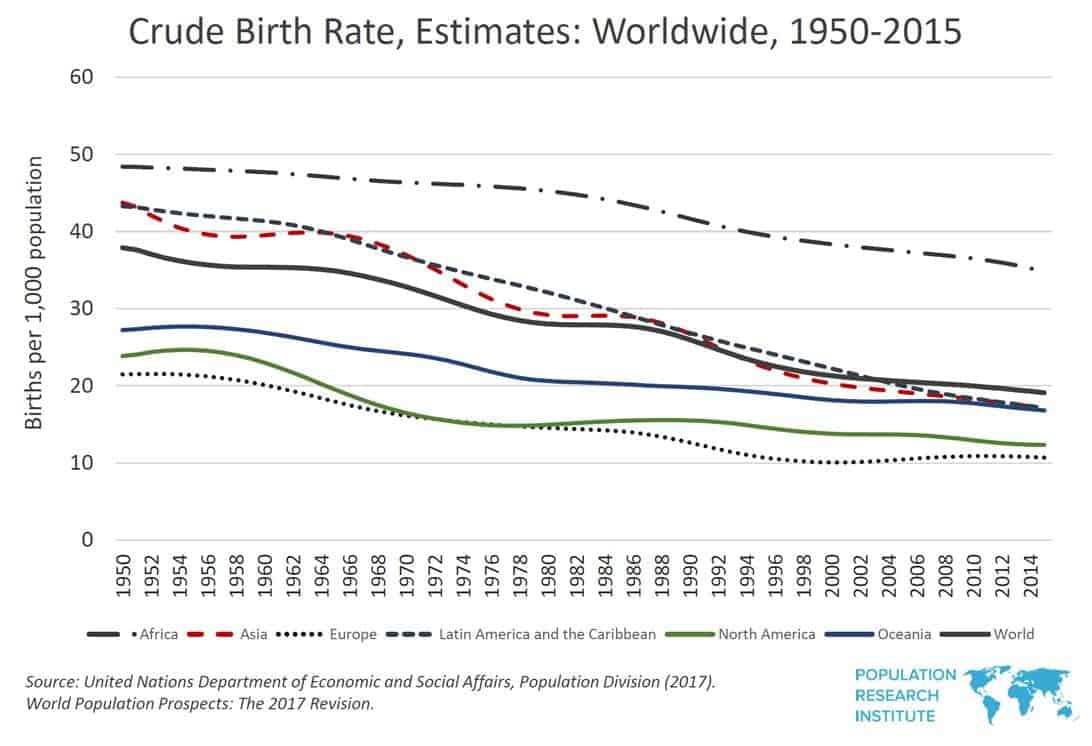Now it is the turn of the population alarmists led by the United Nations with their prediction of 11 billion by the end of this century, who are about to have egg on their faces. The demographers, who study population trends, are now certain that, not only will we not reach that number, but instead predict the world’s population will begin to decline before we reach 9 billion people.
In the near term, a decline in population is a benefit, relieving pressure on the environment and the Earth’s resources. However, the economic models of our future will require a total rebuild.
For thousands of years philosophers have wrung their hands because of fears about the supposed negative impacts of population growth on life as they knew it. In the 5th century BC Confucius argued that population increases would reduce the quality of life. In the second century AD Christian philosopher Tertullian, worried that Carthage, with its “teeming population,” was becoming unsustainably “burdensome to the world”.
In Ancient Greece both Plato and Aristotle argued that a growing population was not sustainable for their resources. Latin priest St. Jerome wrote in the 4th century that “the population is too large for the soil.”
But none of these warnings had much impact on modern society until world famous pessimist Dr. Paul Ehrlich, formerly a butterfly biologist at Stanford University, successfully scared the world with his 1968 book The Population Bomb. In it, he attempted to convince readers that the English economist, Thomas Malthus, was right in predicting the end of the world back in 1798. Fears of severe overcrowding with limited food supplies combined with Ehrlich’s book to lead to the creation an organization titled “Zero Population Growth,” now called “Population Connection.”
As a result of his highly inaccurate publication, Ehrlich was awarded a MacArthur Genius Award. This gave him prominent platforms from which to give annual predictions of doom and gloom, 100% of which proved false. At 87, it now appears that age has scrambled his brain as he maintains he has been right all along, just off in the timing. It reminds one of global warming alarmists who brush aside their numerous errors by claiming that only their timing is off.
Climate activists will soon be facing the opposite of their predictions as solar scientists are confident that we will be entering a cooling period as the Sun enters a Grand Solar Minimum about the middle of the century. Those who predicted we would soon run out of oil and natural gas are also red faced as their ideas have been turned upside down as well.
We need to prepare not for the consequences of a population boom, but a population bust. Market economics failed to topple Chinese communism, but the potential halving of its population by the end of the century just might.Their 30-year program of allowing no more than two children per family actually resulted in a lowering of the average birth rate to less than one child per family. When accounting for single child families, multi child families and the no-child families, who decided life was easier without any children, the birth rate in China is now actually 0.7 per family. The UK-based newspaper, The Independent, reports:
“In January, a government-affiliated think tank warned that the population in the world’s second-biggest economy could start to shrink as soon as 2027.”The following graph illustrates what is happening in China:
China’s falling birth rate

Even in Africa, there is encouraging evidence of population decline, where Kenya, for example, has halved its birth rate in recent decades. Woman are marrying later, getting an education and then entering the work force. As a result of these three factors, not a single country in the developed world even has a replacement birth rate (2.1 children per family) any longer. The United States will continue to grow a little as a result of immigration. India’s rapidly growing population has finally slowed and may one day reach its neighbor, Sri Lanka, which has had a stable population for the past quarter century.

Automation will help but robots don’t buy refrigerators or smart clothes for the office party. Consumption is the bedrock of any economy.So, we need to ask:
- How do we first begin to face stable populations where growth will be elusive?
- How difficult will it be for new companies to break into old industries?
- Will quality of product become far more important than prices?
No comments:
Post a Comment